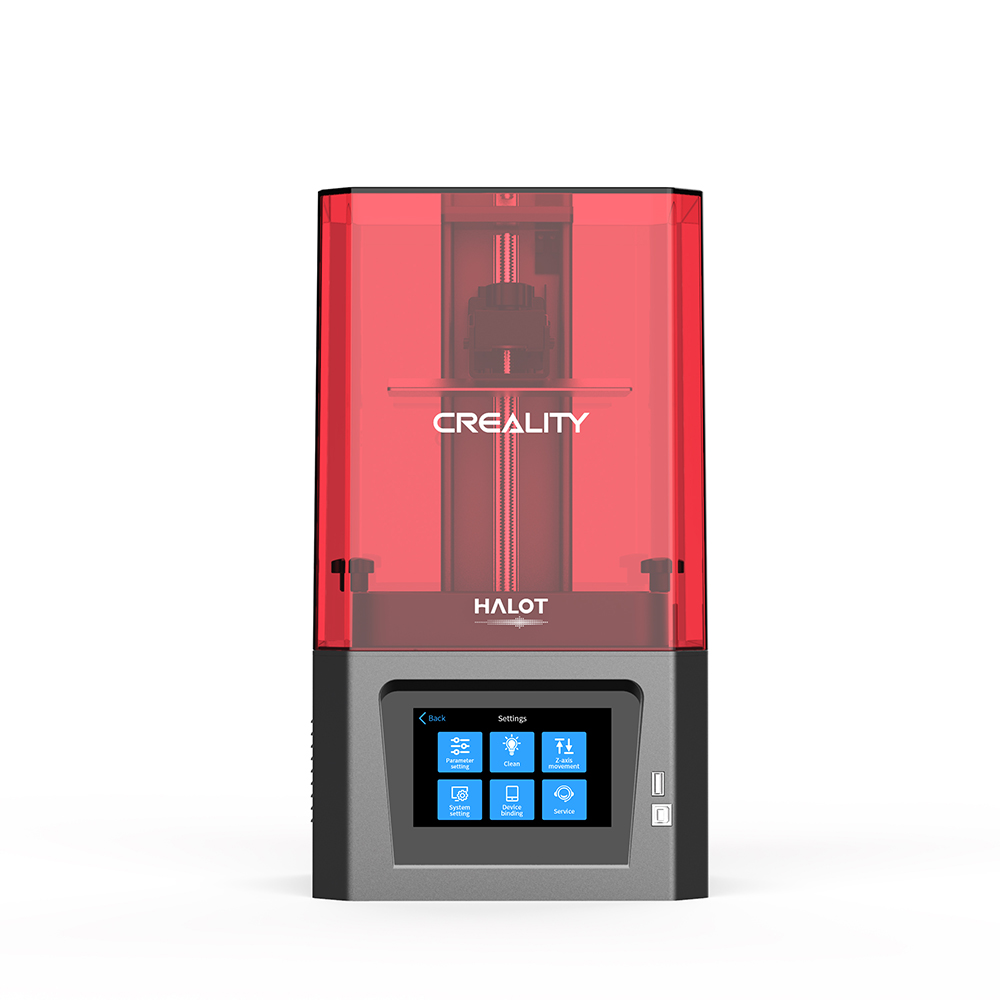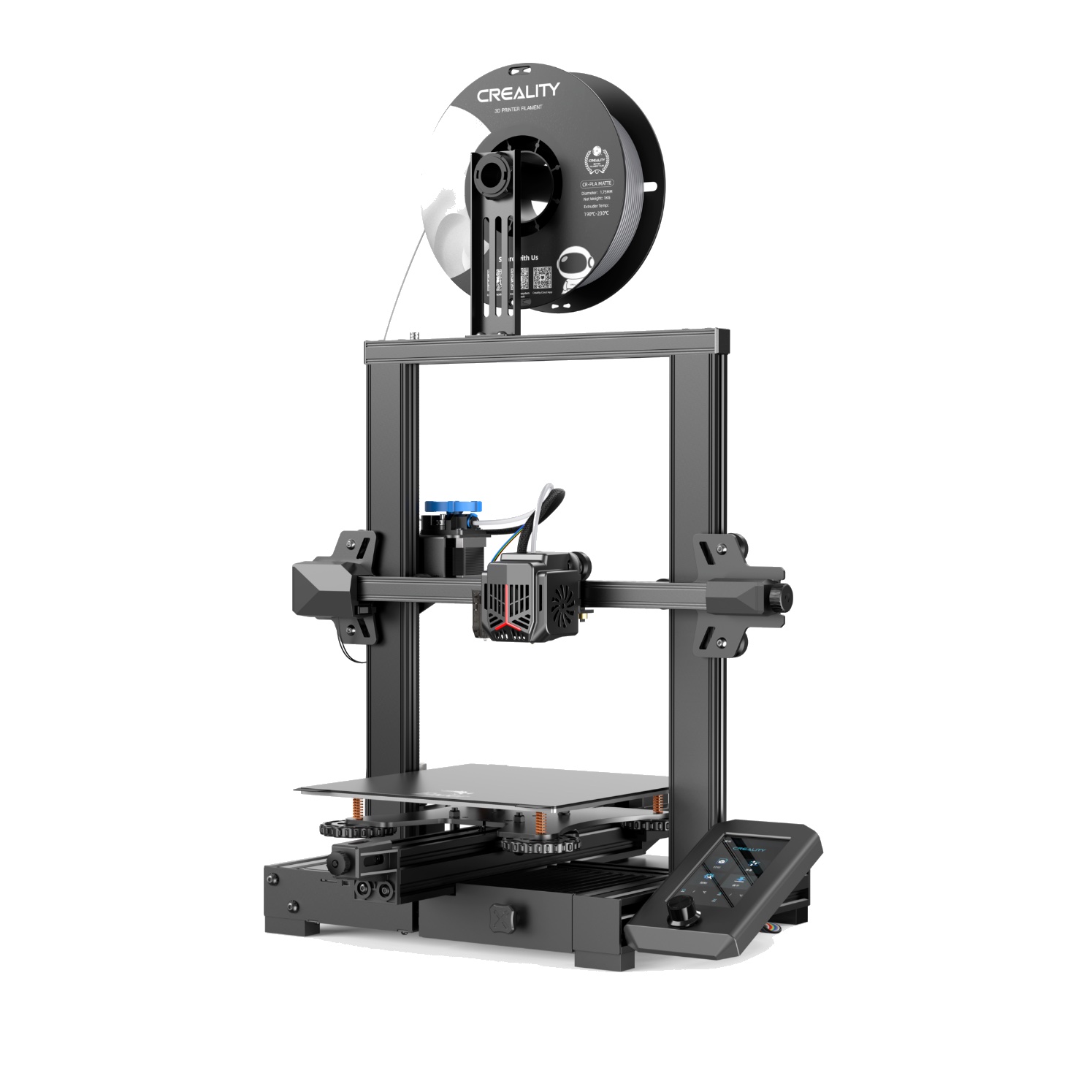Compare Halot One vs Ender 3 V2 Neo
Comparison between the best 3D printers
Choose the best 3D printer at the best price. The cheapest 3D printers are here.
Buy a 3D printer here with 3D Fila.
 |
 |
|
| Model | Halot One |
Ender 3 V2 Neo[BUY Ender 3 V2 Neo] |
| Printing Material | Resin | Filament |
| Buy Resin for Creality 3D Halot One | Buy Filament forCreality 3D Ender 3 V2 Neo | |
| Estimated price | $250,00 | $310,00 |
| Manufacturer | Creality 3D | Creality 3D |
| Release Year | 2021 | 2022 |
| Print Volume [mm] | 127x80x160 | 220x220x250 |
| Printer Size [mm] | 221x221x404 | 438x424x472 |
| Weight [kg] | 7,1 | 9,8 |
| Power Loss Recovery | NO | YES |
| Maximum Resolution [mm] | 2k | 0,1 |
| Processor | 4.2.2 mainboard | |
| Display | Display touchscreen 4,3'' | |
| Power Supply | ||
| Connectivity | SD / USB | |
| Operating systems | Windows, Mac, Linux | Windows, Mac, Linux |
| Date of registration in the system | 2022-10-11 | 2022-12-09 |
| Release date | 2021 | 2022 |
| Extra features | Crealitys Halot-One printer stands out with several innovative features. It has a high-resolution touchscreen, providing an intuitive and responsive interface. Its quiet printing capability is remarkable, ideal for environments where noise is a concern. Assembly and setup are simple, with automatic functions facilitating quick start. Among its features, remote monitoring and adjustments via the Creality Cloud app stand out, simplifying remote print management. Replacing the FEP in the resin vat is easy, and the printer even includes extra FEP sheets. Top cover removal detection increases safety by automatically pausing printing. In addition, its integral light source promises high uniformity, optimizing print quality. | The Ender 3 V2 Neo printer stands out for its automatic bed leveling with the CR Touch system, ensuring high-quality initial layers. It features an all-metal Bowden extruder for increased durability and improved filament handling. Its flexible, PC-coated magnetic build plate makes it easy to remove prints and is durable and easy to clean. It also includes a new user interface with model preview and an updated gantry design. The Ender 3 V2 Neo maintains the same build volume and temperatures as the previous version, supporting popular filaments such as PLA and ABS. It features a quiet 32-bit mainboard and additional features such as a filament sensor, print recovery, simple 3-step assembly, an integrated toolbox, and belt tensioners. |
| Support for multiple colors and materials (AMS and CFS) | NO | NO |
Notes * |
||
| Cost-benefit | 8 / 10 | 7 / 10 |
| Hardware | 0.6 / 10 | 2.8 / 10 |
| Tela | . | . |
| Print volume | 3 / 10 | 3 / 10 |
| Performance | 9 / 10 | 0 / 10 |
| [BUY Ender 3 V2 Neo] |
Conclusion |
| In comparing the Halot One and Ender 3 V2 Neo 3D printers, several key factors emerge that can guide potential buyers in their decision-making process. The Halot One, released in 2021, is positioned as a budget-friendly resin printer, noted for its high-resolution print capabilities, which can yield intricate details in designs. Its compact print volume is smaller than that of the Ender 3 V2 Neo, but it excels in user-friendly features such as a responsive touchscreen, remote monitoring via the Creality Cloud app, and safety mechanisms like automatic pause when the top cover is removed. Although it lacks power loss recovery, its print performance earns a high rating, making it a solid choice for those prioritizing quality over other factors. On the other hand, the Ender 3 V2 Neo, launched a year later, offers a larger print volume suitable for more substantial projects. It boasts features that enhance usability, such as automatic bed leveling, which ensures quality prints from the start, and a flexible magnetic build plate for easier removal of prints. The inclusion of power loss recovery adds a layer of reliability for users who need to resume their projects after interruptions. However, it has a lower performance rating compared to the Halot One, which may reflect its diminished print resolution, although it remains capable of handling popular filaments like PLA and ABS effectively. In terms of cost-effectiveness, the Halot One scores slightly higher, despite its lower print volume, while the Ender 3 V2 Neo offers better overall durability and functionality for filament-based printing. Ultimately, the choice between the two depends on the user's specific needs: for intricate detail work and resin printing, the Halot One is ideal; conversely, for larger projects with filament use, the Ender 3 V2 Neo is the more practical option. Both printers represent solid value within their categories, but the ideal choice will hinge on personal preferences regarding material types, print volume, and feature sets. |

